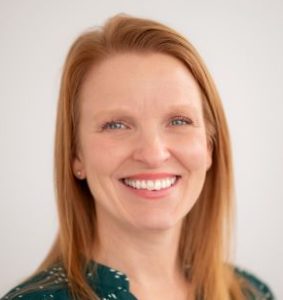
As we’ve watched Kabul fall to the Taliban over the last 10 days or so, criticism of our military’s 20-year effort in Afghanistan has been mounting relentlessly.
Some of that criticism, however, quickly devolved from attacking policy decisions to questioning our military members and veterans.
Those who volunteered for duty in the wake of the Sept. 11 attacks were widely revered as heroes. Now, they and their successors are facing throwaway comments about a worthless war, the sentiment carrying echoes from the Vietnam era, when countless soldiers came home to an ungrateful nation.
Viral social media posts show many of this generation’s service members maintain a sense of pride in the work they did on behalf of the Afghanistan people, the international community and their fellow service members. Yet, they now find themselves the target of a public that can’t comprehend how a nation could collapse so quickly and so completely if it had indeed been well-served by the U.S.
So what does any of this have to do with nursing homes?
Veterans’ homes, places meant to care for our nation’s heroes when they can no longer do so themselves, have also been in the crosshairs recently.
As with Afghanistan, some of them collapsed under the weight of a crisis, despite the backing of the U.S. government.
Last week, certified nurse aides and other former staff of the state-owned Holyoke Soldiers Home in Massachusetts sued a group of former leaders there, claiming “complete disregard” for human life and inhumane working conditions at the height of the pandemic. Though their legal action aims to remunerate employees for the dangers and emotional trauma they faced, legal filings and media interviews related to the suit reveal another grim glimpse into what residents’ treatment must have been like when the facility was first hit by COVID-19.
Yesterday, two of those former facility leaders — who were in charge as 77 veterans died in that single, massive outbreak — sought to have the criminal charges brought against them by state prosecutors dismissed.
Also yesterday, Politico published a scorching rebuke of the federal Department of Veterans Affairs, blasting its lack of oversight in state-run veterans homes for avoidable COVID-19 deaths. The state homes, which include Holyoke, house about 20,000 people per day, compared to federally run VA community living centers, which house about 9,000 daily, across the U.S.
“Soldiers who’d survived battles couldn’t survive the pandemic, as viruses spread through many VA homes that lacked proper controls,” Politico reported. “More than 1,400 people — at least 1,394 residents and 40 staff — died of coronavirus in 110 state veterans homes, according to a POLITICO analysis.”
Even without data missing from four dozen homes, the COVID-19 death rate in state-run facilities was more than double that in VA-run homes. The investigation laid much of the blame on a decentralized system that doesn’t really hold any one entity accountable for care delivery.
But there’s something bigger at play here.
The residents of veterans homes are at a double disadvantage.
While our nation values soldiers who rush into firefights, it has rarely excelled at giving them the kind of post-homecoming support they need. When the efforts they support are deemed part of a losing battle, which many now consider Afghanistan, they sometimes fare even worse.
They are also typically old, making them key candidates for ageism, a factor many others have cited in relation to public officials managing (or mismanaging) nursing homes during the pandemic.
“These are veterans who deserve more,” former Veterans Affairs Secretary David Shulkin told Politico regarding the lapses in state-run facilities. “These are people who have come to rely fully on the VA at a time in life when they need assistance from the country they served.”
In our words and in our actions, in nursing homes and well before they might need them, we must remember that soldiers are people too. When they’re old, they’re old soldiers. And here I’ll disagree with Gen. MacArthur: Old soldiers will indeed die, but we should never let them fade away.
Kimberly Marselas is senior editor of McKnight’s Long-Term Care News.
Opinions expressed in McKnight’s Long-Term Care News columns are not necessarily those of McKnight’s.



